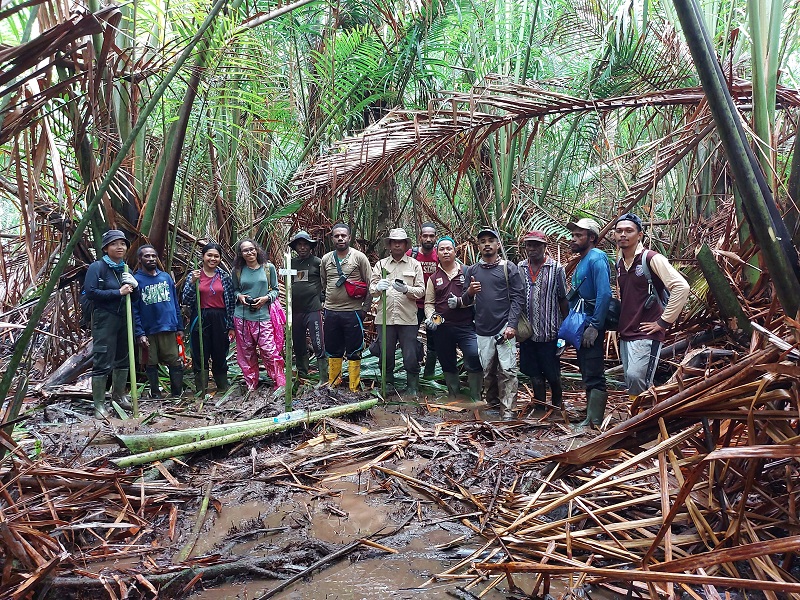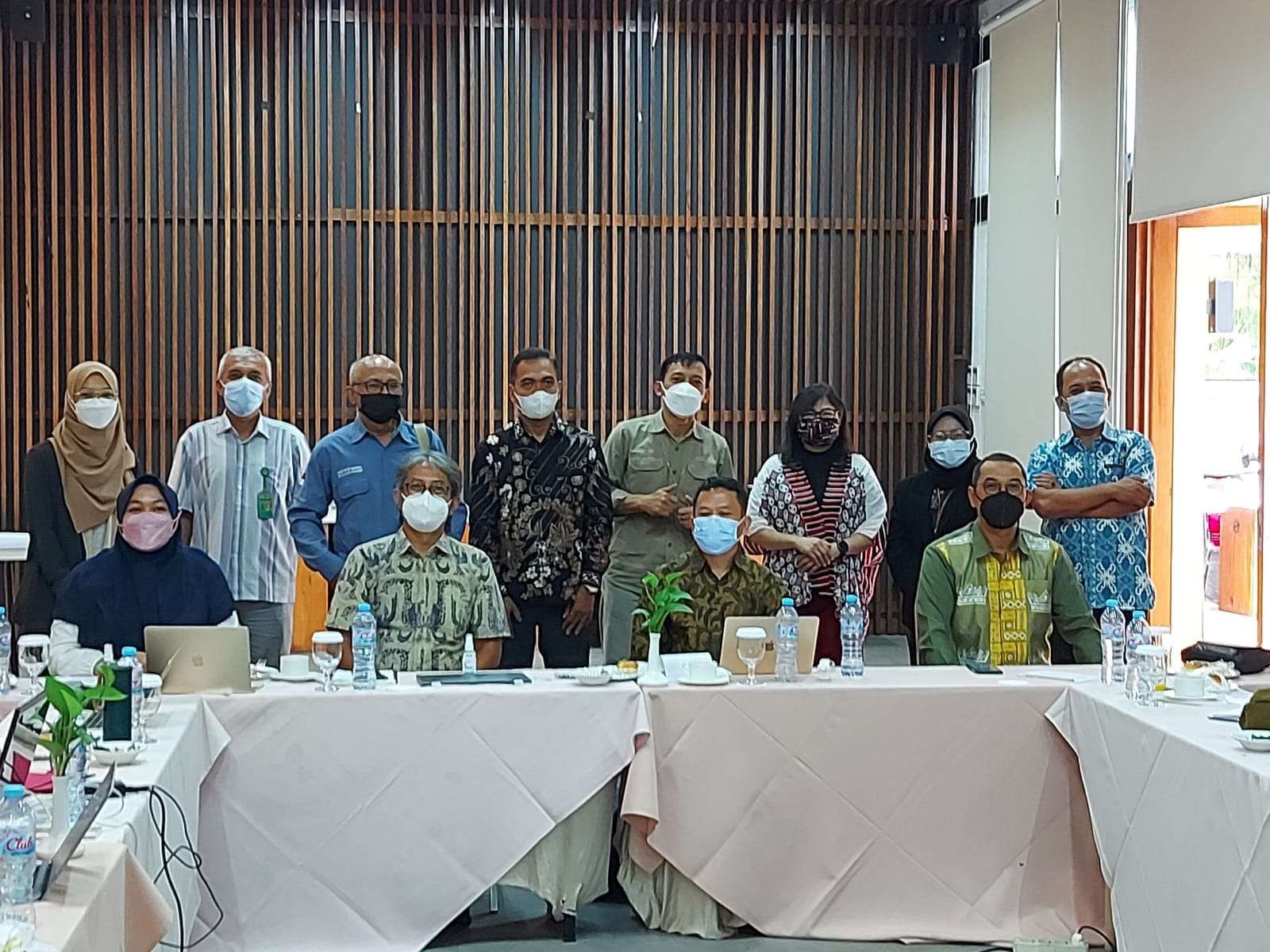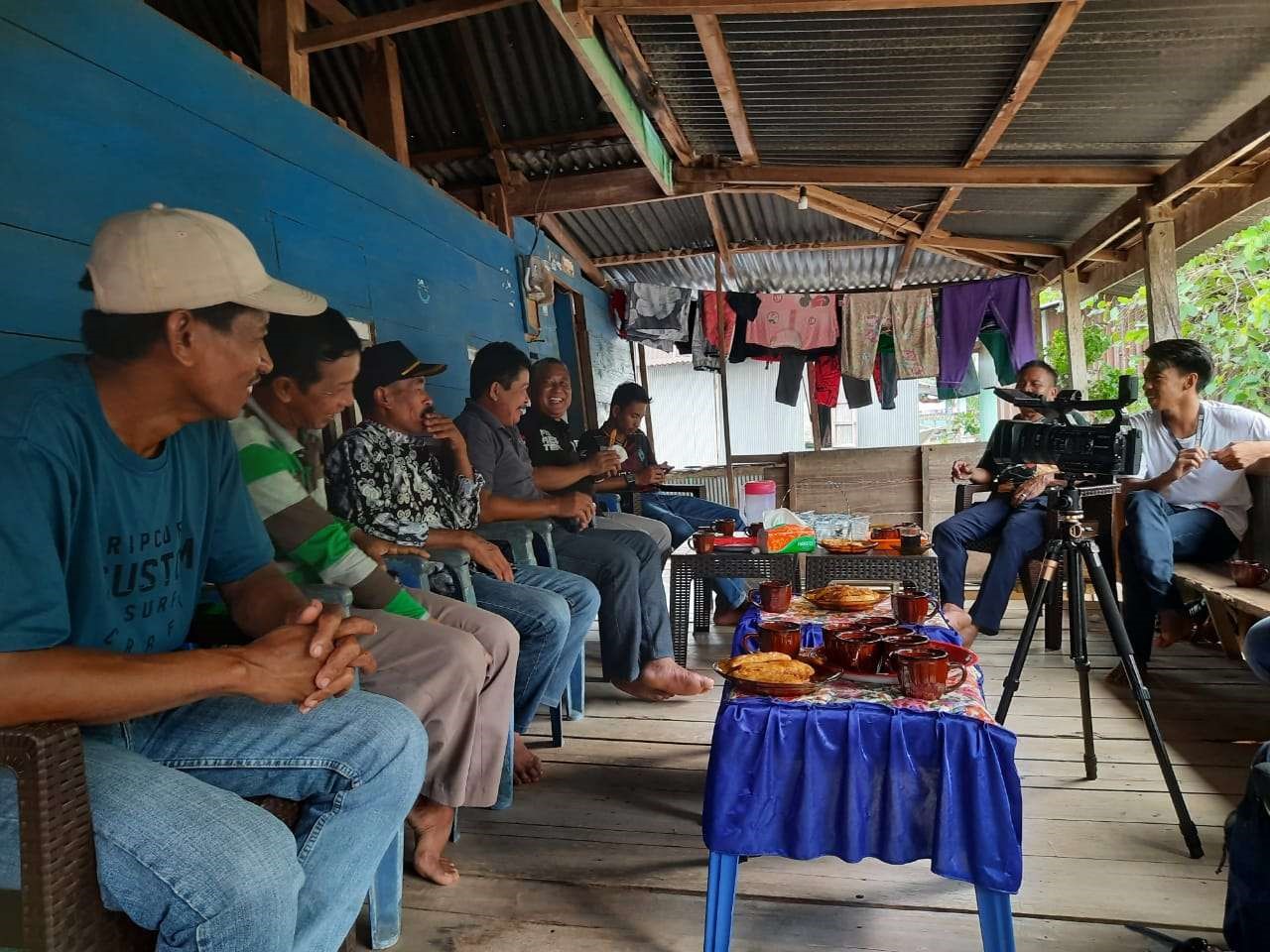FORCLIME
Forests and Climate Change ProgrammeTechnical Cooperation (TC Module)

Select your language

In the wake of the issuance of Law No. 11 of 2020 on Job Creation, as well as Decree of the Minister of Environment and Forestry No. 08 of 2021 on Forest Management, the Preparation of Forest Management Plans and the Utilization of Protection Forests and Production Forests, the South Sorong Production Forest Management Unit (KPHP Sorong Selatan) has taken the initiative of drawing up a revised long-term forest management plan (RPHJP) and an accompanying map. In order to encourage this initiative, FORCLIME offered its support to the West Papua Provincial Forestry Service and the KPHP Sorong Selatan during the collection of primary data in the field between October and November 2021. As a part of these efforts, a survey of social, economic and cultural conditions was carried out for a period of 11 days from 27 October until 8 November 2021. A survey of biogeophysical conditions was then subsequently carried out for a period of 18 days from 27 October until 13 November 2021.
The primary data gathered during the surveys will be used by KPHP Sorong Selatan in order to prepare a revised RPJP document. The FMU has also planned a series of follow-up activities, including focused discussion activities (FGD), public consultations, forest governance analysis and the preparation of a number of documents (RPHJP revision). One of the newest approaches being pursued in this regard will involve the RPHJP document being uploaded to the Ministry of Environment and Forestry’s website.
For more information, please contact:
Melanesia Brigite Boseren, Junior Adviser for Rural Livelihood, Forest Management and Conservation
Nita Yohana, Adviser for Sustainable Forest Management and Coordinator for West Papua Province
Mohammad Sidiq, Strategic Area Manager for Sustainable Forest Management and Coordinator for Papua and West Papua Provinces

Since 2014, The Human Resources Extension and Development Agency (BP2SDM) at the Ministry of Environment and Forestry (MoEF) has been developing the Young Forester Programme (YFP) as a part of efforts designed to meet the needs for human resources at forest management units (KPH). As of 2019, 2,594 YFP personnel had been assigned to KPH. However, based on the most recent data, only 1,068 Young Foresters are now actively working in the field. Although staff numbers are currently relatively small, the results of the monitoring and evaluation conducted by the BP2SDM have revealed that the Young Foresters Programme has made a significant contribution to the operational readiness of FMUs in the field.
Since the Young Forester Programme will end in 2021, the BP2SDM recently conducted an evaluation of the programme and the results were presented at an online and offline workshop that was held on 14 October 2021 in Jakarta. The workshop, supported by FORCLIME, was opened by Dr. Ir. Iwan Setiawan, M.Sc., the Head of Planning, Development and Evaluation of Non-Apparatus HR at the Ministry of Environment and Forestry.
The results of the study and evaluation identified a number of challenges and obstacles relating to the implementation of the Young Forester programme, as follows:
1. Limited human resources at both the central and regional levels.
2. An uncertain future has been a demotivating factor for young foresters working in the field.
3. The authority of the FMU as a forest management institution at the site level is becoming increasingly limited.
The study results also revealed that only seven out of 25 provinces have the resources to continue financing the Young Forester Programme. These seven provinces are: East Kalimantan, Central Kalimantan, South Kalimantan, North Kalimantan, DI Yogyakarta, North Sumatra and North Sulawesi. The results of the study also identify West Nusa Tenggara and West Papua, however, the consultation process within these two regions has not yet been completed. As a result, only 20% - 30% of Indonesia’s provinces are ready to continue with the Young Forester Programme.
One of the outputs from the evaluation of the Young Forester Programme is the following exit strategy scenario:
1. Short-term scenario (affirmative), assigning 32% of the Young Foresters to the local government as honorary KPH staff members, with the remaining 68% to be reallocated to MoEF working units as temporary workers.
2. Medium-term scenario (competitive), preparation of young foresters to become permanent KPH employees (civil servants) through the Recruitment of Government Employees with Work Agreements (P3K) mechanism.
3. Long-term scenario (facilitative), formulating regional action plans that address the meeting of the standard ratio target for forestry human resources at KPHs (minimum of 25 persons per KPH).
Based on the study results, in order to support each of the above scenarios, the BP2SDM will need to coordinate and consolidate intensively with relevant central ministries/institutions, including the Ministry of Home Affairs, the Ministry of Finance, Bappenas and the State Civil Service Agency. In addition, coordination also needs to be carried out with local governments, as well as with the forestry service and the Regional Personnel and Training Agency (BKD), in order to formulate a policy strategy capable of developing and meeting the need for FMU human resources in the future. Regional governments, acting through the forestry service or provincial environment and forestry services, along with the BKD, should actively propose formations to the Ministry of State Apparatus Empowerment and Bureaucratic Reform so that they will be able to meet the demand for human resources by FMUs, either through the formation of ASN or through recruitment of government employees under work agreements.
For more information, please contact:
Wira Hakim, Junior advisor for Human Capacity Development
Edy Marbyanto, Strategic Area Manager for Human Capacity Development

The Makassar Environment and Forestry Education and Training Agency (BD LHK) has been tasked with managing the forest with special-purpose (KHDTK) of Tabo-Tabo Training Forest since 2010. Although the available resources (HR, financing, etc.) are relatively limited in this area, BD LHK Makassar has been implementing strategies aimed at maximising its potential, including the development of a network of cooperation, community partnerships and demonstration plots, among other initiatives. Moreover, the various approaches that are being implemented in terms of handling the challenges that are being faced are to be documented so that they can subsequently be used as lessons learned by KHDTK managers in other locations. As a result, FORCLIME is supporting BD LHK Makassar’s initiative to document its experiences regarding the management of the KHDTK Tabo-Tabo in a forthcoming publication.
As a first step towards the publication of a lessons learned book, from 21 - 25 October 2021, the BD LHK Makassar, working in collaboration with FORCLIME, interviewed various stakeholder representatives of BD LHK Makassar, as well as the technical implementing unit of the Ministry of Environment and Forestry posted in Makassar, various vocational forestry schools located in Makassar and Maros, the South Sulawesi Social Forestry Working Group, the Bulusaraung Forest Management Unit (KPH Bulusaraung), the village government and community leaders from the village of Tabo-Tabo, and the Forest Farmers Group, which is currently being assisted by BD LHK Makassar.
The results of these interviews will be compiled into a lessons-learned book that will specifically address the management of the Tabo-Tabo Training Forest. This book is expected to be completed and published in November 2021.
For more information, please contact:
Edy Marbyanto, Strategic Area Manager for Human Capacity Development
 |
Supported By: |
  |